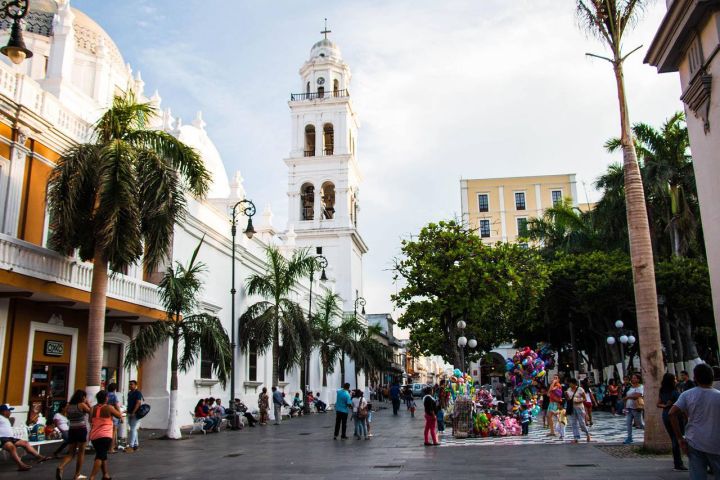
The Mexican authorities have clarified the list of bodies authorized to issue apostilles and have abolished the legalization requirement for foreign birth certificates issued to children of Mexican citizens.
Changes in the Apostille Rules in Mexico
The authority responsible for certifying federal documents in Mexico is now the Directorate of Political Coordination with the Powers of the Union (Dirección de Coordinación Política con los Poderes de la Unión), specifically through its Subdirectorate of Formalization and Control (Subdirección de Formalización y Control).
The officials in charge of document legalization are the Director of the Registry of Appointments, Legalization, Apostille, and Administration of the Insular Territory (Director de Registro de Nombramientos, Legalización, Apostilla y Administración del Territorio Insular) and their deputy. These bodies fall under the jurisdiction of the Mexican Ministry of the Interior. Previously, the Ministry of the Interior itself was considered the authority directly responsible for issuing apostilles.
To submit a federal document for apostillization, it must be personally signed by an authorized official.
When submitting documents, applicants must present a valid identification (national ID, passport, military ID, professional certificate), an individual identification number, a payment receipt, and an application form. The form must include the applicant’s full name, type of procedure, the country where the document will be used, information about the submission of the payment receipt, the method of return delivery, as well as phone number and email address.
Documents can be submitted in person. If there are between 1 and 5 documents, they are returned within 85 minutes; if there are more, they are returned the following day. Applicants living in remote areas may use courier services.
The Directorate apostilles the following:
- Documents issued by federal government authorities;
- Documents issued by institutions of the Ministry of Public Education;
- Documents issued by private universities.
Before apostillization, documents must be certified by the General Directorate of Accreditation, Registration, and Re-certification of the relevant authority. This also applies to private universities — their documents must be certified by the General Directorate of Accreditation, Registration, and Re-certification of the Ministry of Public Education, with the exceptions of the National Autonomous University of Mexico, which is handled by the General Directorate of Registration and Re-certification of Educational Institutions, and the Autonomous University of Chapingo, whose documents do not require prior certification.
In addition, diplomas from technological universities and other federal educational institutions are certified by the Legal Affairs and Transparency Department of the Ministry of Public Education.
Notarial copies of government documents in Mexico are not subject to apostille or consular legalization. Certified copies can be made at the relevant authorities. Applications for a “federal” apostille can be submitted on any working day; the service is not available on weekends or public holidays.
Certain categories of documents are apostilled exclusively at the state level. These include:
- Birth certificates;
- Marriage certificates;
- Divorce certificates;
- Death certificates;
- Certificates of no marriage;
- Criminal record certificates;
- Municipal and regional documents;
- Notarial documents.
Each state in Mexico has its own authorities authorized to issue apostilles. Most commonly, these are the General Secretariat of the State Government, the Directorate of Archives, the Undersecretary of Government, or the Administrative Services Center.
The Purpose of the “I am Mexico” Program
Currently, in Mexico, at the state level and with support from federal and municipal authorities, the “I am Mexico” program is being implemented.
The program allows people born abroad who have at least one Mexican parent to obtain Mexican citizenship and access the full range of national social services without the need for apostille or official translation of their foreign birth certificate (primarily documents from the United States). In addition, state authorities have temporarily waived fees for submitting documents to obtain citizenship.
The practical implementation of the program is handled by the Civil Registry Offices (Registro Civil). Each state has designated registry offices that provide these services.
The aim of the “I am Mexico” program is to provide Mexicans living abroad the opportunity to integrate into Mexico’s social, educational, labor, and economic life by obtaining a birth certificate and a national identity card.
To access the service, applicants must submit to the Civil Registry:
- The original and a copy of the foreign birth certificate;
- Two copies of an identification document;
- The birth certificate of the Mexican parent;
- A no-registration certificate (from the place of birth);
- An application form (from the place of submission).
For minors, documents may be submitted by close relatives.
Recent сhanges in apostille authorities worldwide
As previously reported by Schmidt & Schmidt, a number of countries have recently changed the authorities and officials authorized to legalize documents for use abroad. For instance, in India, the unit authorized to handle apostille matters is the Consular, Passport and Visa (CPV) Division of the Ministry of External Affairs.
In Finland, the right to issue apostilles has been granted to the Digital and Population Data Services Agency (Digi- ja väestötietovirasto).
The Colombian authorities have granted the power to authenticate documents to the Ambassador and the Head of Operations within the Apostille and Legalization Coordination Office.
The government of Andorra has extended apostille powers to the Director General of the Ministry of Foreign Affairs, as well as to the Director of International Legal Affairs and Human Resources.
In turn, the political leadership of Venezuela has authorized the Director General of the Directorate of Consular Affairs and the Coordinator of the Legalization and Apostille Sector of the Ministry of People’s Power for Foreign Affairs to authenticate documents by means of apostille.
The authorities of Uzbekistan have authorized regional justice departments to issue apostilles.
In Uruguay, the General Directorate of Consular Services has been officially designated as the competent authority for issuing apostilles.
In the British Virgin Islands (a British Overseas Territory), the Office of the Deputy Governor has been designated as the sole authority responsible for issuing apostilles.
The Bermuda Islands have transferred the apostille function to the Parliamentary Registry Office.
In Saint Lucia and in Saint Vincent and the Grenadines, the Registrar of the High Court has been replaced by the Chief Clerk of the Supreme Court as the designated apostille authority.
Additionally, Cuba has transferred responsibility for consular legalization from the Ministry of Foreign Affairs to the Ministry of Justice. This measure is temporary.
Havana has expressed its intention to join the Hague Convention and adopt the use of apostilles.
The authorities of Saint Kitts and Nevis have removed the Attorney General, the Chief Secretary of the Prime Minister’s Office, and the Registrar of the Supreme Court from the list of officials authorized to issue apostilles. A new official has been added to the list — the Legal Adviser of the Legal Department of the Nevis Island Administration.
In Malta, the competent authority has changed as a result of an administrative reform. Apostilles are now issued by the Office of the Deputy Prime Minister and the Ministry for Foreign and European Affairs and Trade.
What is an apostille?
What is an apostille? Why do I need an apostille? How do I get an apostille? - Our video will explain everything you need to know about the apostille. If you have a document that needs to be certified with an apostille for use abroad, Schmidt and Schmidt will assist you! We provide apostille services in more than 100 countries worldwide.





